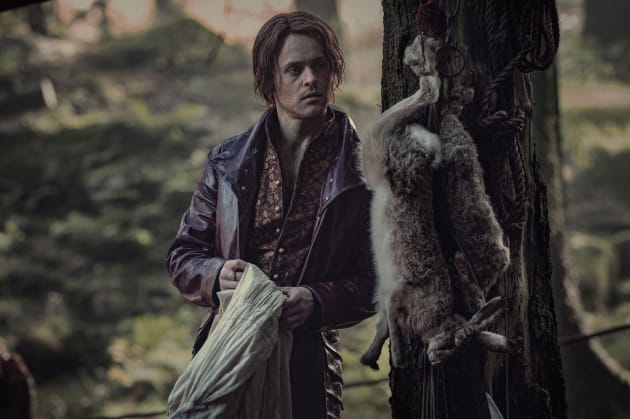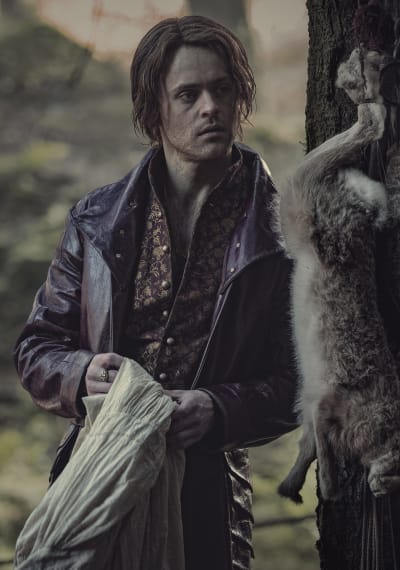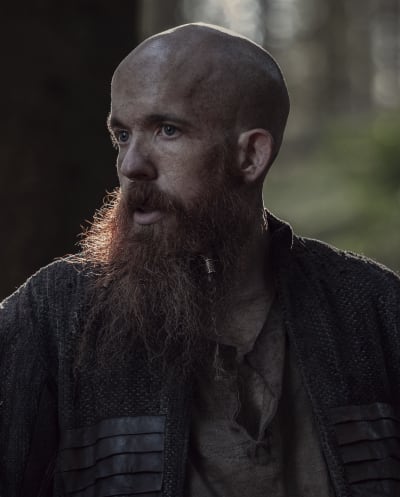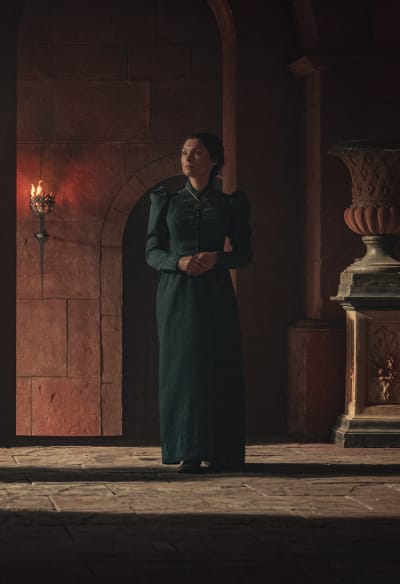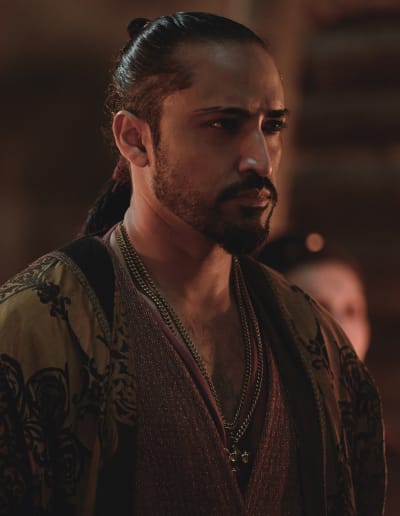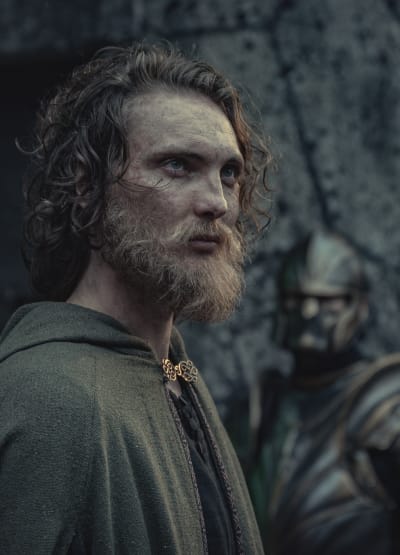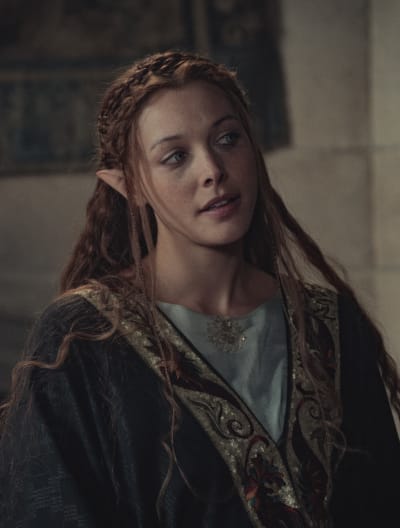I appreciate the full circle we’ve come in with The Witcher Season 2 Episode 7. There’s something satisfying about touching base with the familiar.
And it’s not only geography but relationships too. Geralt’s reunion with Jaskier is actually more touching than his reconnection with Yennefer. Mainly because we knew Yennefer was about to betray them.
The penultimate episode of the season does a solid job at bringing together the most dramatic moments of revelation and tragedy and then leaves us with a sinister cliffhanger.
I’ll admit that I didn’t recognize Vola’s home when Ciri and Yennefer portalled there at the end of The Witcher Season 2 Episode 6, but seeing as it’s where Ciri and Geralt first met, it seems fitting that Ciri and Yennefer make their first magical trip there.
Unfortunately for Vola and her family, Reince visits before Ciri drops in, leaving their bodies for her to find.
It’s no wonder that Ciri thinks she attracts violence and death.
There was a lot of horseback travel used here, which makes my slightly distractable brain wonder how far apart the various cities and landmarks are. (I’m sure there’s a wiki-map out there. I’ll add it to my holiday research list.)
I feel like Jaskier’s best scenes are always when the only person he can pull focus from is himself. The mice in his cell share space but not the spotlight.
When he and Yennefer have their scene at the end of The Witcher Season 2 Episode 4, his compulsion to throw in a needling comment impedes their ability to move forward.
The man holds onto gripes and grudges like a toddler.
Last time we saw each other, you basically told me to fuck off. Remember? And you left me ON A MOUNTAIN. Have you seen these boots? I mean, I pretty much just slid all the way down that hill back to Caingorn.
Jaskier
Even when Geralt asks him for his help, he puts his complaints away, but we can tell it’s not forgotten.
With the addition of Yarpin Zigrin and his posse to Geralt’s entourage, there’s more than a passing similarity to a certain Tolkein fellowship.
(Full disclosure: My first impression of Geralt when The Witcher Season 1 premiered was “Scruffy Legolas.”)
Mind you, these dwarves are far more bloodthirsty than those of Middle Earth, and the bearded lady dwarf was a nice touch too.
I like that Geralt retains relationships where someone like Zigrin trusts him to be good for the coin. They can insult each other from dawn to dusk, but Zigrin and his gang are willing to throw in on the adventure.
I didn’t realize Tissaia and Vilgefortz’s relationship was more than one of political convenience. And honestly, it troubles me as I’ve always envisioned Tissaia as a woman of singular principle and purpose.
As Vilgefortz’s other half, she is diminished, much as Fringilla was made less by Cahir’s presence in Cintra.
The toxic power dynamic between the two is emphasized when he yells at her after Triss withdraws from them and immediately follows up with a standard passive-aggressive emotional squeeze play.
And, as I’ve mentioned before, Vilgefortz has done little to endear him to me. He insisted Yennefer was dead when she wasn’t. He took credit for the Sodden Hill victory when it should have been Yennefer’s.
There’s no way around it. Vilgefortz is bad news, full stop, and it’s unfortunate that Tissaia’s in bed with him in more ways than one.
Fringilla and Francesca’s Voleth Meir arcs come to resounding conclusions as Fringilla cements her leadership in blood and Francesca’s worst nightmare comes true.
Geralt proves the key to understanding what Voleth Meir gets out of her contracts. As he explains to Jaskier, she feeds on fear and desperation.
Fringilla is the appetizer. Her fear builds in layers.
First, there was Cahir’s return, which cued the generals to begin undercutting her authority.
Then, with the birth of their child, Francesca and Filavandrel turn away from their commitment to the Nilfgaardian army, effectively negating Fringilla’s one success, the enlargement of the army.
When she visits her uncle, it’s a sign that both fear and desperation have reached extreme levels. When he won’t provide her with the familial support she is seeking, she realizes that she must be her own salvation.
Paralyzing, then killing the generals in front of Cahir, is a magnificent powerplay, and Mimi Ndiweni OWNS every line and action.
Not for the first time, I am reminded that, although the series is named and focused on a single male protagonist, it is the women that make things truly interesting.
The agony that filled Voleth Meir’s cup to overflowing is Francesca’s despair in finding her child murdered.
To kill the hope of not only the mother but an entire race of people is a tragedy of epic dimensions.
Killing babies is probably the pinnacle of evil. In every culture, in every era, the slaughter of innocents is viewed as the most monstrous of actions.
While we don’t know who did it yet, the list of suspects is a long one.
And as horrific as the crime is, its knock-on repercussions are even more appalling.
Voleth Meir’s escape does not take a random path. The demon’s essence makes a beeline for Ciri, and we can only assume the most powerful being on The Continent is now possessed by the most malevolent entity.
There’s little to discuss at this point. No reader is going to stop here to share thoughts and feelings. But feel free to double back after watching the finale and check in with us in the comments section.
Diana Keng is a staff writer for TV Fanatic. Follow her on Twitter.
